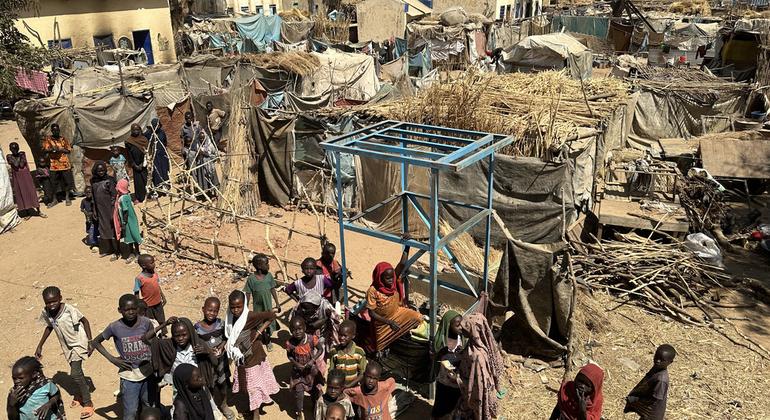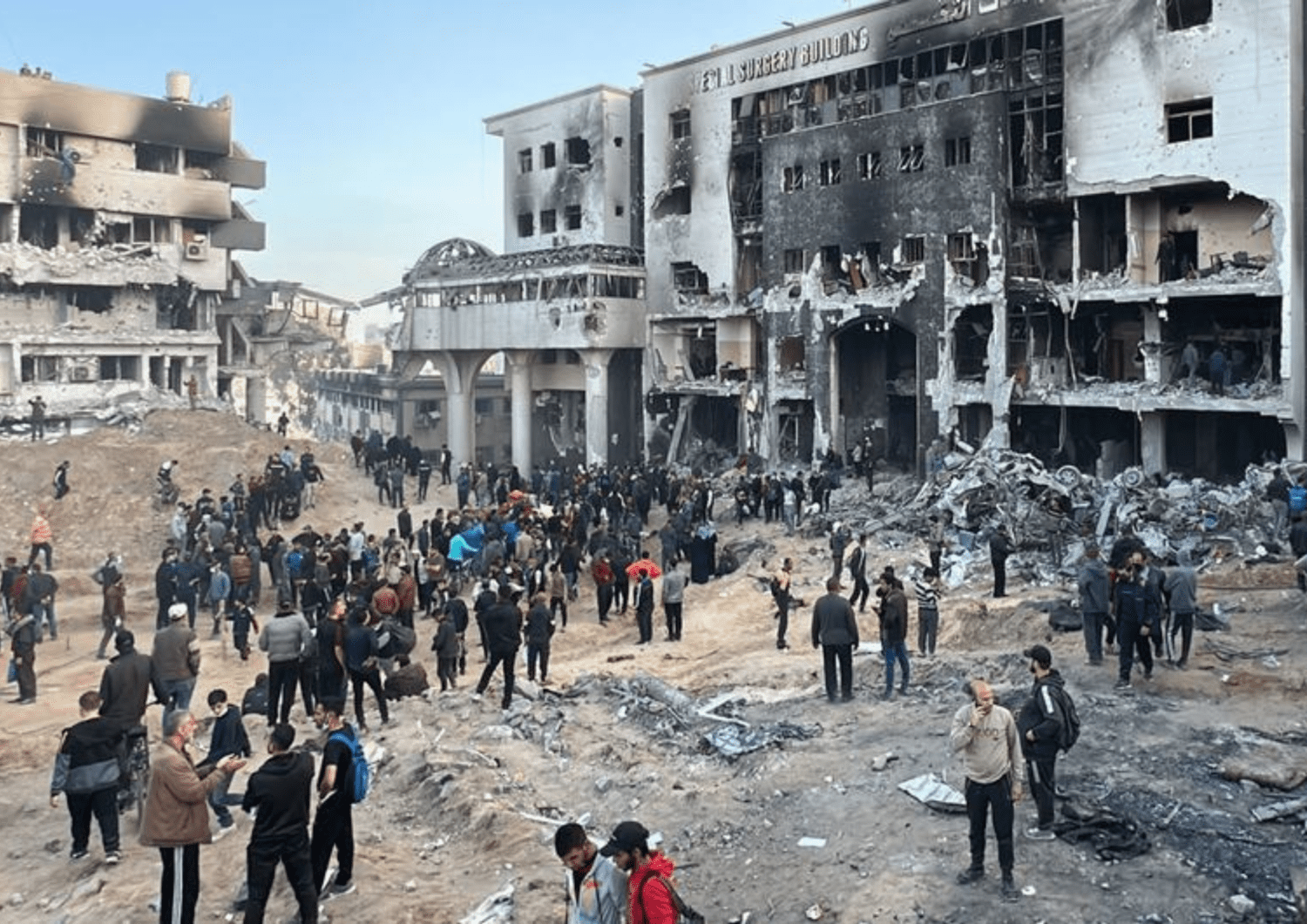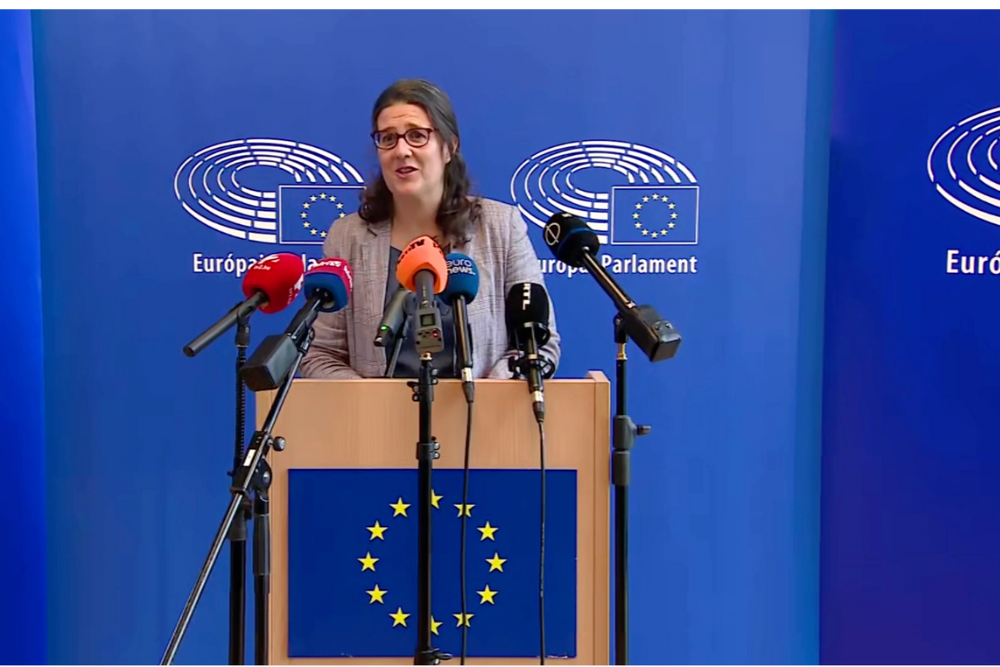A year to the day since heavy fighting erupted between Sudan’s rival militaries, the UN High Commissioner for Human Rights warned of a further escalation, including an imminent attack on El-Fasher in North Darfur.
“The Sudanese people have been subjected to untold suffering during the conflict which has been marked by indiscriminate attacks in densely populated areas, ethnically-motivated attacks, and a high incidence of conflict-related sexual violence. The recruitment and use of children by parties to the conflict are also deeply concerning,” said Mr. Türk.
And as an international donor conference for the Sudan emergency began in Paris on Monday, the UN rights chief underscored the potential for further bloodshed, as three armed groups announced that they were joining the Sudanese Armed Forces in their fight against the Rapid Support Forces and “arming civilians”.
UN chief’s appeal
In a video message to the conference, UN Secretary-General António Guterres said that “we cannot let this nightmare slide from view”, given the sheer scale of the suffering.
“I appeal to the generosity of donors to step up their contributions” and support for the life-saving humanitarian work being done, with woeful shortfalls in current contributions.
The Humanitarian Response Plan of $2.7 billion is only around six per cent funded.
“We urge effective and coordinated international mediation efforts to stop the fighting”, he said.
Since fighting erupted on 15 April 2023, more than eight million people have been displaced, including at least two million to neighbouring countries.
Acute hunger danger
“Nearly 18 million people face acute food insecurity, 14 million of them children, and over 70 per cent of hospitals are no longer functional amid a rise in infectious diseases – this catastrophic situation must not be allowed to continue,” said High Commissioner Türk.
Echoing those concerns, the UN Children’s Fund (UNICEF) said that some 8.9 million children are suffering from acute food insecurity; this includes 4.9 million at emergency levels.
“Almost four million children under five are projected to suffer from acute malnutrition this year”, including 730,000 from life-threatening severe acute malnutrition, UNICEF said in a statement on Sunday.
“Almost half of the children suffering from severe acute malnutrition are in areas that are hard to access” and where there is ongoing fighting, noted UNICEF Deputy Executive Director, Ted Chaiban.
“This is all avoidable, and we can save lives if all parties to the conflict allow us to access communities in need and to fulfil our humanitarian mandate – without politicizing aid.”
Civilian rule targeted
Top UN rights official Türk also expressed deep concern that arrest warrants had been issued against former Prime Minister Abdallah Hamdok and others on apparently unsubstantiated charges.
“The Sudanese authorities must immediately revoke the arrest warrants… and prioritize confidence-building measures towards a ceasefire as a first step, followed by a comprehensive resolution of the conflict and the restoration of a civilian government,” Mr. Türk insisted.
UN humanitarians meanwhile have reiterated that chronic hunger and malnutrition continue to make children “much more vulnerable to disease and death”.
Conflict has also disrupted vaccination coverage in Sudan and safe access to drinking water, UNICEF explained, meaning that ongoing disease outbreaks such as cholera, measles, malaria and dengue now threaten the lives of hundreds of thousands of children.
“Spikes in mortality, especially among internally displaced children, are a forewarning of a possible huge loss of life, as the country enters the annual lean season,” the UN agency said, as it underlined the need for predictable and sustained international aid access.
“Basic systems and social services in Sudan are on the brink of collapse, with frontline workers not being paid for a year, vital supplies depleted, and infrastructure, including hospitals and schools, still under attack.”
Schools shuttered
And in a warning that the whole country could be engulfed in fighting that has left half of Sudan’s population in need of humanitarian relief, the global fund for education in emergencies, Education Cannot Wait, underscored that four of the eight million people uprooted by the violence are children.
The conflict “continues to take innocent lives, with over 14,000 children, women and men reportedly killed already,” said Yasmine Sherif, Executive Director of Education Cannot Wait.
Ms. Sherif echoed deep concerns that Sudan now has one of the worst education crises in the world, with more than 90 per cent of the country’s 19 million school-age children unable to access formal education.
Mariam Djimé Adam, 33, is sitting in the yard of Adre’s secondary school in Chad. She arrived from Sudan with her 8 children.
“Most schools are shuttered or are struggling to re-open across the country, leaving nearly 19 million school-aged children at risk of losing out on their education,” she said.
To date, the global fund has provided nearly $40 million to support education for victims of the crisis in Sudan and beyond, in the Central African Republic, Chad, Egypt, Ethiopia and South Sudan.
“Without urgent international action, this catastrophe could engulf the entire country and have even more devastating impacts on neighbouring countries, as refugees flee across borders into neighbouring States,” Ms. Sherif said.














